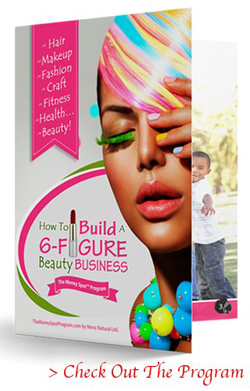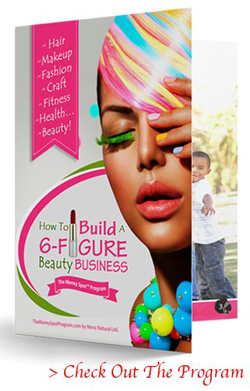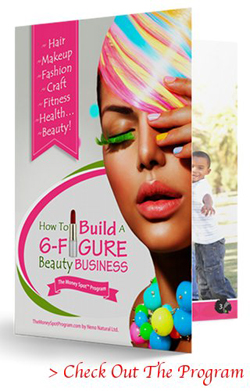|
I'm getting married in the fall. November. Prior to getting engaged I thought long and hard over one issue - my name. Will I change my name or won't I? If not, why not? I vacillated over the issue, blowing hot and cold from one day to the next. The reasons for changing my name to take my future husband's were:
Don't get me wrong, I am proud of the person to whom I am getting married. I love him dearly but I love myself too. I love my free spirit and I think I will make a better partner if I maintain my character, if I don't lose myself in the marriage and changing my name could be the beginning of such a transition. I summed up my thoughts by thinking of marriage as a joint venture rather than a takeover. As I was toying around with this analogy a good old friend came to visit. She quickly told me that after some years of marriage, she'd pulled out of the alliance. Her story of the marriage helped me clarify the analogy. A joint venture marriage is easy to define. It's a partnership between two people where you look after each other and mutually discuss how household responsibilities will be divided. It is a healthy relationship in which each partner has a sense of self plus the knowledge that they are loved and appreciated for who they are rather than what they have or what labour services they are expected to provide. This is the sort of union I hope to form. Now, the hostile takeover of a marriage: he has a character U-turn the moment your position goes from Miss to Mrs. Regardless of the fact that you both work (you might even have a more demanding job than him), he sees all domestic chores as a woman's responsibility. You do all the cooking, cleaning, ironing and washing of clothes. On all matters, it is his way or the high way because he is, after all, the head of the household. If you complain about this strict adherence to roles he spins some story about wanting to follow the "traditional" model of marriage (the model where woman fusses over man and man sits around waiting to be fawned over). "Tradition", dredged up time and time again by men who need to control their women. He convinces you that he is right, you're being too radical, so you decide to play the highflying career woman by day and the submissive woman without an opinion by night. A few years down the line, the compromise inevitably wears you thin, you don't want to play along anymore but more often than not it's too late, now you have precious little Johnny to consider.
7 Comments
Being a single woman seems to signal one or more of the below, depending on who you're talking to:
I had never even considered the social status issue until Bri mentioned it. She says that whenever she goes to family dinners and other events all her relatives seem to treat her with more respect than her older cousins because she is, after all, a married woman. It's even far better to be divorced than to have never married of course, at least then you were (at some point) desirable. In the ideal world, the majority of people would much rather be in a good relationship than stay single. However, we don't live in such a world and it is far far better to be single and happy than to force a relationship where one should not exist. If there are any major issues before you get married e.g. weird habits or tendencies, marriage is not going to solve them; if he beats you, run girl run; if you know he's cheating - run faster, there are many diseases out there nowadays. For some, meeting a suitable partner is the key issue - working too many hours, going to the wrong places, being too picky all reduce the pool of potential partners. Take working long and arduous hours. I have some friends in their late-thirties who as twenty-somethings grafted so hard that they barely had time to eat, let alone meet men. Even on the odd occasion that they managed to socialise they were too exhausted to put any effort into looking. Importantly, they still thought they were too young to get married but in one fell swoop (it seemed to them) they went from 27 to 33 and a good portion of guys their own age were hitched. Having spent a decade or more building a career and a wealth base, a second problem is born: you demand more from a partner. Even if you are not at all superficial, if you have worked hard to achieve a certain status, you will prefer a partner that matches those things. When you're young and have nothing to your name, a guy with nothing to his name but potential looks rather good. Fast-forward ten years, the same guy doesn't look too good. You have a mortgage, an investment portfolio and preferences. At 24, you were pretty flexible and accommodating. Messy or disorderly housemates didn't annoy you but by 33 you've gotten accustomed to your own ways. I found that after just one year of living on my own I became extremely intolerant. My mum came to visit and placed the butter on the wrong shelf in the fridge and that really ruffled my feathers. After throwing a mini-tantrum I decided I would find a housemate and learn to tolerate others again. I didn't like the new me. This is just one example, however, with the passing of time everyone begins to take a firm stance on issues and some of these will reduce the type of people you are willing to accept in your life. The advantage of becoming financially independent is that you can make the choice. You have a lot of options to hand. There are many out there who have lost themselves in a marriage. Their individual identity has become marred in a mishmash of compromises. They, without putting much thought to it, have wound up with a life different to the one they had imagined but remain powerless to change its course. Powerless because they don't have the economic capacity to escape their situation. To the untrained eye they may seem happy but really, this sort of coupling is not superior to being single. Happiness, joy and laughter are completely possible if you're single. There is no proven correlation between being single and being unhappy. Being single is not synonymous with loneliness. You may very well have a full life as a singleton with innovative work-arounds for physical needs; although what those work-arounds might be, I'd rather not expound.
“Investment Banker”; it is now 100 years since the establishment of International Women’s Day in 1911. Yet say these two words to anybody and almost invariably the image of a Caucasian man in a stiff suit pops into their mind. But views are changing and they’re changing fast. In partnership with HSBC, Women in Banking and Finance organised a networking event and workshop on "How to achieve Career-Family success" led by Christine Brown-Quinn, Founder of The Female Capitalistä and author of “Step Aside Superwoman! Career & Family is for Any Woman”. It was enlightening – Christine gave us some of the latest statistics on the progress that women have made in the working world and some of the hurdles we still face. For instance, in five years, 70% of GPs in the UK will be women. The session was highly interactive. We discussed solutions that can enable the achievement of that perennially desired, hard-to-achieve optimal balance between giving 100% to work and giving 100% to home as well as the pervasive benefits a working mum brings to her family, her children, her colleagues and indeed society at large. I went to the seminar planning to leave early but changed my mind within thirty minutes. This event was the perfect ground for building connections as it included people from different banks and indeed some from different industries. Oddly enough, I managed to catch up with a Managing Director (one of the very few female MDs on the trading floor) who sits two rows away from me in my bank but whom I have never had a chance to converse with properly. I received some extremely useful career advice in the process. She mentioned that when she started out the senior women were all “trying to be men”. They never spoke of their personal experience or their life outside of work for that matter. They also maintained a tough, unapproachable exterior. As a Gen-Y, I have probably taken some of the freedoms we now enjoy for granted. Nowadays being womanly is completely compatible with being an intelligent, go-getting investment banker and Wibf is successfully managing a platform for like-challenged women to meet, share their experiences and improve their personal and professional skills. Although the event focussed on women, I thought men who are interested in the issues that women face (anyone with a sister, daughter, niece or a wife) would also be in attendance. However, only one man was in the room. Indeed much of the information on achieving a work/life balance is applicable across the board regardless of gender. Now more than ever, given the increase in the number of fathers that state that they wish to spend more time with their families. Going forward, it is up to us to encourage the boys to come along – as Sylvana Caloni (Manager of the Personal Excellence Programme and Vice President Wibf) rightly pointed out, we have to do this together. Above all, one thing stood out for me. It was the enthusiastic, can-do attitude that permeated through the room. At the end of the day, it was all about maintaining a positive attitude.
|
Archives
December 2015
Categories
All
By Heather Katsonga-WoodwardI'm always thinking, debating, considering and revising my views - some of those deliberations will be shared right here. |




 RSS Feed
RSS Feed
